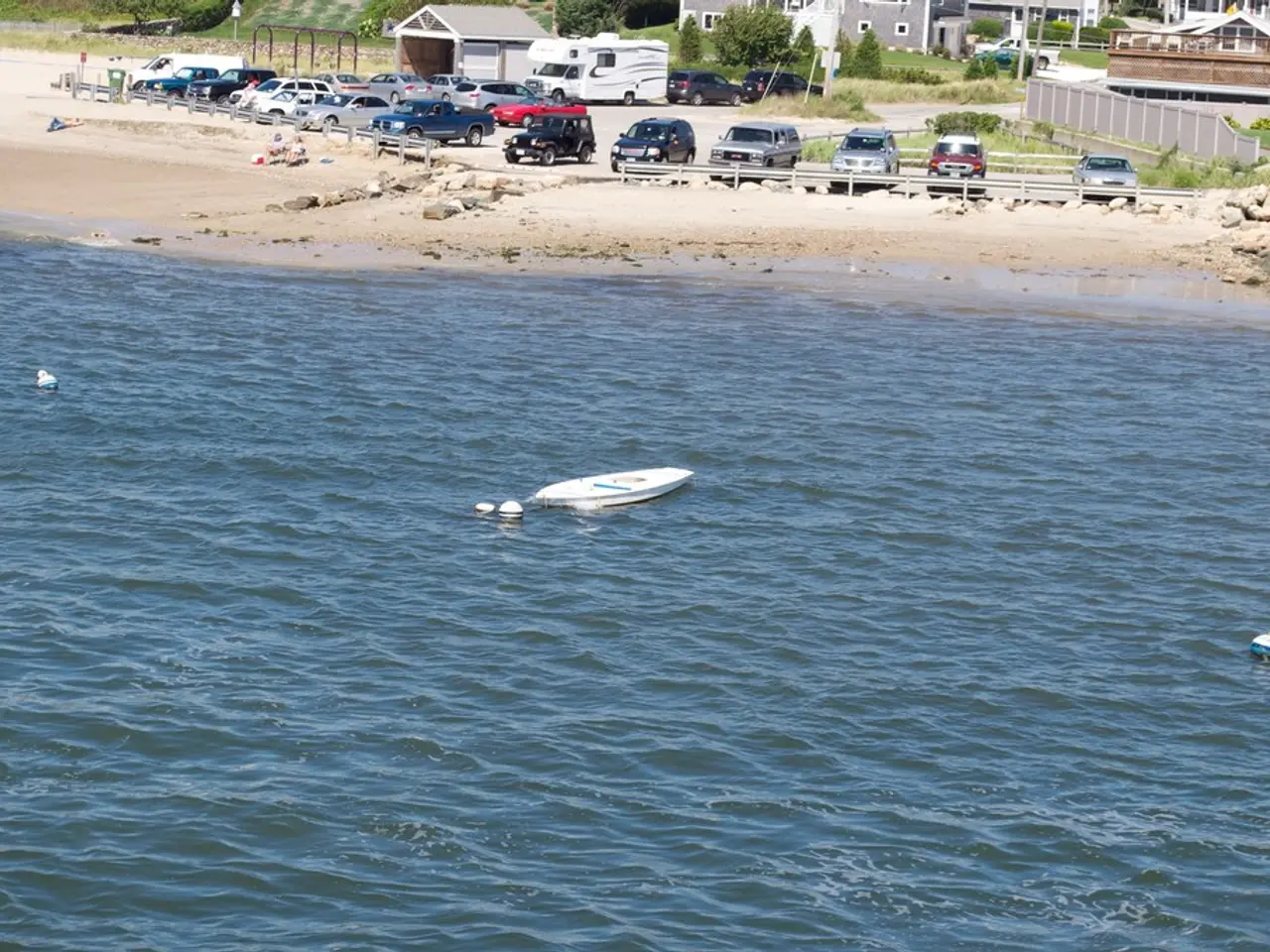Baltic Region's Marine Spatial Data Infrastructure
The Baltic Sea Marine Spatial Data Infrastructure Working Group (BSMSDIWG) is a collaborative body focused on national coordination of maritime information within the Baltic Sea region. The group's remit includes studying the current methods of maritime data coordination among its members, identifying areas where Marine Spatial Data Infrastructure (MSDI) implementation is underway, and making recommendations for future MSDI development.
In the context of promoting sustainable growth of maritime and coastal activities, the European Union has proposed a directive for improved maritime spatial planning and integrated coastal management. This directive, which includes Article 10 on data collection and exchange of information, establishes a framework for maritime spatial planning and integrated coastal management. Member States are obliged to carry out planning according to national and international law.
Implementing acts will ensure consistent implementation of the Directive throughout the EU, facilitating reporting from the Member States to the Commission and data exchange between Member States and the Commission. The proposal requires Member State action to aim for coherence of management across sea basins, through trans-boundary cooperation and appropriate data collection and exchange.
The maritime spatial plans and integrated coastal management strategies will integrate and link objectives defined by national or regional sectorial policies. The BSMSDIWG, as part of the broader MSDI ecosystem, functions within frameworks that include HELCOM (Helsinki Commission) and various EU and intergovernmental projects, which promote regional cooperation on marine spatial planning, data sharing, and sustainable use of marine resources.
Although specific recent or future BSMSDIWG meetings or strategic plans are not explicitly detailed in the available 2025 documentation, Baltic Sea regional projects under the Interreg Baltic Sea Region program continue to support spatial planning and data infrastructure development.
According to the International Hydrographic Organization’s (IHO) 2025 Work Programme, there is ongoing monitoring and maintenance related to Spatial Data Infrastructures (SDI), including cooperation with European initiatives like INSPIRE and EMODnet. However, no dedicated BSMSDIWG activities or papers have been noted for 2025 due to a lack of suitable contributions from member states or others.
The BSHC launched its MSDI working group in order to promote an increased awareness of maritime spatial data infrastructure both within the Baltic Sea region and at the larger European scale. The resulting work plan from the BSHC’s MSDI working group focuses on MSDI-related tasks that are seen to be important and challenging from a regional and a national perspective. The working group has conducted an in-depth survey of the participating countries' respective approaches to coordinated access to maritime information.
The study identifies areas where MSDI implementation is underway and where challenges can be foreseen, such as ensuring rules and rights in relation to the use of vector data between countries, continuous updating of relevant data, and clarifying the financial aspect. The next meeting of the BSHC's MSDI working group is planned to take place in the second half of 2014 in Germany.
For more detailed or the latest updates on upcoming meetings or strategic directions, consulting the IHO Secretariat or HELCOM directly, or the BSPC (Baltic Sea Parliamentary Conference) related working groups might provide additional insights. The IHO's Marine Spatial Data Infrastructure Working Group has published a guidance for hydrographic offices outlining the benefits of developing SDIs to reinforce coordination among maritime authorities.
- The Baltic Sea Marine Spatial Data Infrastructure Working Group (BSMSDIWG) functions within frameworks that also include Helsinki Commission (HELCOM) and various EU and intergovernmental projects, promoting regional cooperation on marine spatial planning, data sharing, and sustainable use of marine resources.
- The European Union's proposed directive for improved maritime spatial planning and integrated coastal management includes articles on data collection and exchange of information, establishing a framework for maritime spatial planning and integrated coastal management.
- The BSHC's MSDI working group has conducted an in-depth survey of the participating countries' respective approaches to coordinated access to maritime information and identified challenges such as ensuring rules and rights in relation to the use of vector data between countries, continuous updating of relevant data, and clarifying the financial aspect.
- The International Hydrographic Organization’s (IHO) 2025 Work Programme includes ongoing monitoring and maintenance related to Spatial Data Infrastructures (SDI), including cooperation with European initiatives like INSPIRE and EMODnet.
- The proposal requires Member State action to aim for coherence of management across sea basins, through trans-boundary cooperation and appropriate data collection and exchange, as part of the integrated coastal management strategy.
- The Maritime spatial plans and integrated coastal management strategies will integrate and link objectives defined by national or regional sectorial policies, including health-and-wellness, fitness-and-exercise, environmental-science, business, technology, travel, education-and-self-development, home-and-garden, sports, finance, and lifestyle.
- Implementing acts will ensure consistent implementation of the Directive throughout the EU, facilitating reporting from the Member States to the Commission and data exchange between Member States and the Commission, which is crucial for investing and making decisions related to these sectors.




